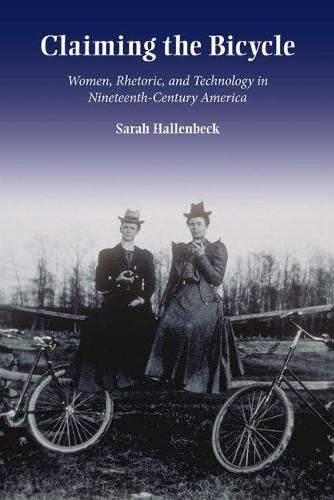Readings Newsletter
Become a Readings Member to make your shopping experience even easier.
Sign in or sign up for free!
You’re not far away from qualifying for FREE standard shipping within Australia
You’ve qualified for FREE standard shipping within Australia
The cart is loading…






Tracing the role of nineteenthcentury women and rhetoric in transforming the bicycle
Although the impact of the bicycle craze of the late nineteenth century on women’s lives has been well documented, rarely have writers considered the role of women’s rhetorical agency in the transformation of bicycle culture and the bicycle itself. In Claiming the Bicycle, Sarah Hallenbeck argues that through their collective rhetorical activities, women who were widely dispersed in space, genre, and intention negotiated proper uses for the bicycle, destabilizing cultural assumptions about femininity and gender difference.
Making a significant contribution to studies of feminist rhetorical historiography, rhetorical agency, and technical communication, Claiming the Bicycle asserts the utility of a distributed or collected model of rhetorical agency and accounts for the efforts of widely dispersed actors to harness technology in promoting social change.
$9.00 standard shipping within Australia
FREE standard shipping within Australia for orders over $100.00
Express & International shipping calculated at checkout
Tracing the role of nineteenthcentury women and rhetoric in transforming the bicycle
Although the impact of the bicycle craze of the late nineteenth century on women’s lives has been well documented, rarely have writers considered the role of women’s rhetorical agency in the transformation of bicycle culture and the bicycle itself. In Claiming the Bicycle, Sarah Hallenbeck argues that through their collective rhetorical activities, women who were widely dispersed in space, genre, and intention negotiated proper uses for the bicycle, destabilizing cultural assumptions about femininity and gender difference.
Making a significant contribution to studies of feminist rhetorical historiography, rhetorical agency, and technical communication, Claiming the Bicycle asserts the utility of a distributed or collected model of rhetorical agency and accounts for the efforts of widely dispersed actors to harness technology in promoting social change.